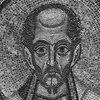Subtotal: $
Checkout
Things to Remember on Bad Days
Saint John Chrysostom writes to Saint Olympia about how to combat depression during sickness.
By John Chrysostom
March 13, 2022
Saint Olympia was born into a wealthy pagan family in Constantinople in AD 362. After the death of her parents she was raised by her uncle Procopius, a devout Christian. Although she was widowed at a young age, she refused to remarry, choosing instead to put her great wealth at the disposal of the church, eventually housing 250 female ascetics on one of her properties. She requested Saint John Chrysostom, thirteen years her senior, to be her spiritual father; he wrote her many letters of encouragement, primarily in an effort to lift her spirits from the affliction of despondency. The following is excerpted from a letter written by Saint John Chrysostom from Cucusus, after he was about thirty-two months in exile near the beginning of AD 407.
Even with the exceeding severity of the winter, and our stomach’s infirmity, and the raiding of the Isaurians, do not let your cares for us make you overly anxious. For the winter has been simply what it naturally is in Armenia, so it’s not necessary to say anything more about it; and it’s not harming us very much.
Foreseeing these things, we have devised many ways to fend off being harmed – having a fire burning continually, having the little room where we’re staying screened off all the way around, being wrapped in many blankets, and staying inside all the time. All of this causes us to suffer, but it’s bearable because of the beneficial results. For as long as we stay indoors, we are not overly tormented by the cold; but when we are forced to go outside even for a little while, coming into contact with the air, not a little damage is inflicted upon us.
Therefore I beseech Your Excellency, asking for a great favor – that you take great care to amend the infirmity of your body. For despondency can produce physical illness; and when the body is in pain and great weakness, when it is completely neglected, and when it is deprived of doctors, temperate weather, and an abundance of daily necessities, consider how not a little aggravation of distress is caused thereby.
Do you not know how much reward infirmity can bring to a thankful soul? Have I not spoken often on this subject, both in person and in my letters? But if the crowd of cares, or the nature of this infirmity of yours, or everything else coming upon you one after another, do not allow you to hold continuously in your mind the things we have said to you, listen again to us singing this refrain for the healing of the wounds of your despair; as he [Saint Paul] says, “For to me to write the same things is not troublesome, and for you it provides safety” (Phil. 3:1).
Do not imagine that the struggle set before you is small; for dealing with bodily illness is more exalted a contest than all the things you have endured.
What, therefore, do I say and write? That nothing, Olympia, is so worthy of consideration as patience in the midst of pain and grief. For this is the queen of good things, the perfection of crowns, and just as it surpasses other virtues, so this particular form of virtue especially surpasses the others in brilliance.
Perhaps what we’ve said is not clear – so I will make it clearer. What, therefore, is it that I’m saying? That neither being stripped of one’s goods, nor the despoiling of everything that one has, nor falling from a place of honor, nor being driven from one’s homeland and carried off to a foreign land, nor being exhausted by pain and sweaty toil, nor dwelling in a prison and being bound by chains, nor reproaches, nor abuses, nor mockeries, nor the loss of one’s children – even if all of them are snatched from us suddenly – nor continually menacing enemies, nor anything else like such things; and not even the chief of everything that appears grievous – death itself, so fearsome and terrifying – is as oppressive as bodily illness (even such a great man a Jeremiah was not shaken as much by such things as by bodily affliction) (Jer. 15:18) – and yet we still must consider it not a small thing to bear such things nobly, to be an image of endurance.
For Job, that great athlete of patience, demonstrates these things, in that when he was afflicted with a bodily disease, he considered death to be a deliverance from the evils that were befalling him.
But do not think of this as an excuse for you also to desire your end, even if that one did desire death, feeling that he could not bear the physical pain. Consider when that one desired death, and what the surrounding circumstances were. For he lived before the law was given, before the prophets appeared, before grace had been poured out, and without having partaken of any other kind of philosophy. That we have much greater responsibilities demanded of us than those living back then, and that the arena which is spread out before us is greater, listen to Christ saying, “If your righteousness does not exceed that of the scribes and the Pharisees, you will not enter into the kingdom of heaven” (Matt. 5:20).

Photograph by Hernan Sanchez
So, therefore, do not think now that praying for your end is exempt from reproach. Rather, hearken to the voice of Paul saying, “To depart and be with Christ would be far better; but it is more needful for me to remain in the flesh for your sake” (Phil. 1:23-24).
Do not, therefore, imagine that the struggle now set before you is small; for dealing with bodily illness is more exalted a contest than all the things you have endured, as I have said.
And you, therefore, if you stay in your house, if you are held fast in your bed, do not think that you are living an unproductive life. For you are enduring something more grievous than what you have suffered at the hands of public torturers, by whom you have been dragged, savagely attacked, stretched to the utmost – and that is this extreme infirmity of yours, which is like having a public torturer continually residing in your house. But do not therefore either desire your end or neglect your health; for that is not safe. Therefore Paul heartily advises Timothy to take the greatest care of himself. But about your illness – it’s enough to say these things.
Do not consider it only a small consolation that we are alive, that we are in good health, that having been encompassed with so many difficulties, we have been delivered from sickness and infirmity – on account of which our enemies, who know this, are in exceeding grief and pain. It follows, therefore, that this should be your greatest encouragement, and your chief consolation. And do not call your life-journey a desolation, for it is already inscribed in the heavens through the sufferings that you are enduring.
From Saint John Chrysostom Letters to Saint Olympia, trans. David C. Ford. Copyright © 2016 St Vladimir’s Seminary Press. All rights reserved.
Already a subscriber? Sign in
Try 3 months of unlimited access. Start your FREE TRIAL today. Cancel anytime.






